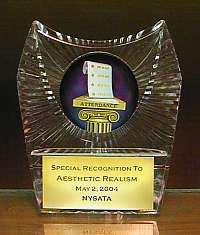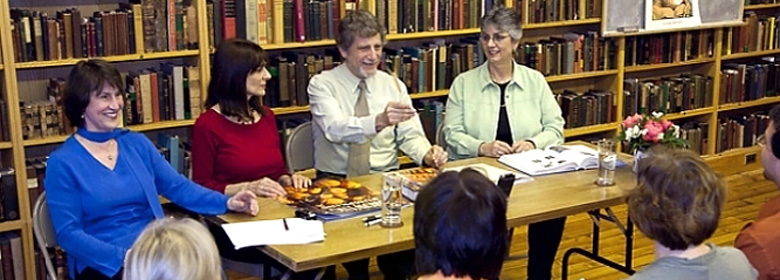The Aesthetic Realism Teaching Method
Taught by Barbara Allen, Patricia Martone, Arnold Perey, PhD, & Rosemary Plumstead
This interactive workshop for teachers of all grades and subjects—from reading to science, history to mathematics—is based on the following Aesthetic Realism principles:
(1) “The purpose of education is to like the world;”
(2) The greatest interference to learning is contempt, “the addition to self through the lessening of something else;”
(3) “The world, art, and self explain each other: each is the aesthetic oneness of opposites.”
The workshop includes demonstration lessons, consideration of class plans, and discussion of how to meet the needs of individual students. The Aesthetic Realism Teaching Method is making possible unprecedented changes in New York classrooms: Fury and racism at last can end! Students at every level learn—including reading—with an ease and vivid interest new in the history of education.
Alternate Saturdays, 1:00 – 2:30 PM Eastern Time (USA)
Spring-Summer 2024 classes via video conference are now in session.
Want to audit a class?
- Contact the registrar at 212.777.5055, Mon–Fri, 2–6 PM (ET) or submit this brief form.
- Be sure to make your request at least 2 days in advance of the class.
Once you receive permission to audit a class, click on the “AUDIT” button to pay the fee:
FACULTY BIOS: Barbara Allen, Patricia Martone, Rosemary Plumstead, Arnold Perey, PhD
Some lectures about education by Eli Siegel:
Articles by teachers, & more:
- English Language Arts
- Science Education
- Arithmetic / Mathematics
- Physical Education [& Special Education]
- Social Studies
Read “An Aesthetic Realism Manifesto about Education”
 In The Right of Aesthetic Realism to Be Known teachers have steadily published powerful articles about the success of this method in classrooms, K-12, describing at the time it happened how the Aesthetic Realism Teaching Method works. In every issue a vital commentary by the Chairman of Education of the Aesthetic Realism Foundation, Ellen Reiss, explains the basis of this method and how real children, like those you may teach, can learn as has never been possible before. For these issues, click here.
In The Right of Aesthetic Realism to Be Known teachers have steadily published powerful articles about the success of this method in classrooms, K-12, describing at the time it happened how the Aesthetic Realism Teaching Method works. In every issue a vital commentary by the Chairman of Education of the Aesthetic Realism Foundation, Ellen Reiss, explains the basis of this method and how real children, like those you may teach, can learn as has never been possible before. For these issues, click here.
And we want especially to call your attention to the groundbreaking lecture by Eli Siegel “Educational Method Is Poetic”, serialized in 10 issues of The Right of Aesthetic Realism to Be Known. In these issues, #1448–1457, you can read, together with this lecture, historic commentaries by Ellen Reiss and articles by New York City teachers telling of their own classrooms, students, and lessons.

Presented to the Aesthetic Realism Foundation by the New York State Attendance Teachers Association
The articles in The Right Of together with the articles in publications nationwide, that you can reach via links on this page, show
(1) how classroom education is related to things that usually seem separate from it, including love, economics, and friendship;
(2) how children can successfully learn even in this time of severe deprivation;
(3) how teachers can effectively and proudly teach and not be burnt out and weighed down; and
(4) how the growing difficulty learning and increasing anger in schools can be things of the past.
